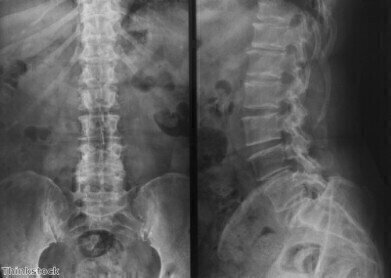-
 Spinal stimulation causes movement for paralysed men
Spinal stimulation causes movement for paralysed men
News
Spinal stimulation causes movement for paralysed men
Apr 08 2014
Four paralysed men have been able to move their legs after electrical stimulation of their spinal cords. They were able to flex their toes, knees and ankles but could not walk independently. Experts believe that it could lead to treatment for spinal injury.
The report, published in the journal 'Brain', suggests the electricity makes the spinal cord more sensitive to the messages it still receives from the brain. The spinal cord is needed to carry electrical signals from the brain to the rest of the body, meaning that if it becomes damaged messages will not be able to get through. This often results in people with spinal cord injuries losing all movement and sensation below where they have received the injury.
A team of researchers at the University of Louisville and the University of California have been pioneering electrical stimulation of the spinal cord below the injury. Three years ago they reported that a man who had been paralysed from the chest down was able to move his legs while supported on a treadmill. Their new report reveals that three more patients have had successful outcomes after the innovative treatment.
All three patients had been paralysed for at least two years and were able to have some movement in their lower body. They were able to control their legs at a precise pace and two could control the force of the movement.
This research indicates that it is possible to restore function after the spinal cord has been injured.
One of the researchers, Dr Claudia Angeli from the University of Louisville, told the BBC: "They will tell you that the stimulation itself and being able to practise and move around makes them feel a lot better, some of them will just describe it as feeling alive again."
"Muscle mass increases significantly and they've all shown changes in bowel and bladder [function] as well."
It is not yet certain how the electrical stimulation helps the body recover movement but some researchers believe that there are still some weak signals that are able to make it through the injured part, when stimulated this makes the spinal cord more receptive to these weak signals.
Digital Edition
Lab Asia Dec 2025
December 2025
Chromatography Articles- Cutting-edge sample preparation tools help laboratories to stay ahead of the curveMass Spectrometry & Spectroscopy Articles- Unlocking the complexity of metabolomics: Pushi...
View all digital editions
Events
Jan 21 2026 Tokyo, Japan
Jan 28 2026 Tokyo, Japan
Jan 29 2026 New Delhi, India
Feb 07 2026 Boston, MA, USA
Asia Pharma Expo/Asia Lab Expo
Feb 12 2026 Dhaka, Bangladesh


















